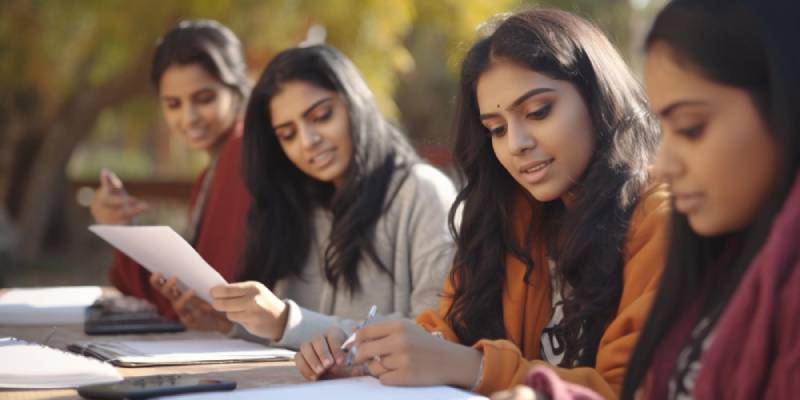Education is an essential element of an individual’s life. It helps in shaping one’s personality and building a prosperous career. In India, there has been a traditional approach to education. Their theoretical knowledge has been given more importance than practical knowledge. However, with changing times, there is a growing need for practical education.
In this article, we will discuss the need for practical education schools in India. Also, the importance of reflective teaching and the benefits of practical education.
What is practical education?
Practical education refers to an education system that focuses on hands-on Learning and the acquisition of real-world skills. It goes beyond just learning theoretical concepts and includes the application of that knowledge to solve practical problems.
The Need for Practical Education in India

India is facing a massive unemployment crisis. One of the reasons for this is the lack of practical skills among graduates. Students who come out of universities and colleges lack the skills that are required in the job market. This is because the education system in India does not prioritize practical Learning. To address this issue, there is a growing need for practical education in India. Practical education can equip students with the skills that are required in their future careers and make them more employable.
Practical Education Schools in India
There are a few schools in India that have recognized the importance of practical education. They have incorporated it into their curriculum. These schools focus on providing students with hands-on experience and practical skills that are relevant to their future careers. Practical education schools have seen a lot of success. The students who graduate from these schools are well-prepared to face the challenges of the real world.
Here are a few examples of practical education schools in India:
Dhirubhai Ambani International School, Mumbai: This school has a strong focus on practical education. It uses innovative teaching methods to encourage experiential Learning.
Riverside School, Ahmedabad: This school emphasizes project-based Learning and encourages students to apply their knowledge to real-world situations.
Shri Ram School, Delhi: This school has a comprehensive practical education program. It includes hands-on Learning, field trips, and community service projects.
The Valley School, Bangalore: This school focuses on holistic education. They encourage students to explore their interests and passions through practical Learning.
Pathways World School, Gurgaon: This school offers a range of practical education programs. It includes internships, apprenticeships, and entrepreneurial projects, to help students acquire real-world skills.
The Importance of Reflective Teaching

Enhancing Teacher Professional Development: Reflective teaching helps teachers identify areas where they can improve and seek out resources to enhance their skills and knowledge.
Improving Student Learning Outcomes: Reflective teaching can help teachers adjust their practices to better support student learning and help students acquire practical skills.
Fostering a Culture of Continuous Improvement: Reflective teaching encourages ongoing improvement within the education system by promoting collaboration and a willingness to learn from experience.
Empowering Teachers to Take Ownership of Their Teaching: Reflective teaching allows teachers to make informed decisions based on their own experiences and expertise rather than solely relying on external guidance or mandates.
6 Ultimate Benefits of Practical Learning in India

There are numerous benefits of practical Learning.
Here you can check 6
Ultimate Benefits of Practical Learning In India:
Enhanced Employability: Practical education teaches students job-specific skills, which makes them more employable and increases their chances of finding a job that matches their skill set.
Bridging the Gap Between Theory and Practice: Practical education helps students apply theoretical knowledge to real-world situations, which is essential for success in their careers.
Improved Problem-Solving Skills: Practical education requires students to solve real-world problems, which helps them develop their problem-solving skills and think critically.
Boosting Entrepreneurship: Practical education equips students with the skills required to start their own businesses and identify new opportunities in the market.
Self-Reliance and Confidence Building: Practical education allows students to apply their knowledge to real-life situations, which boosts their self-reliance and confidence in their abilities.
Contributing to Society: Practical education enables students to use their skills to solve real-world problems and make a positive difference in the world.
In conclusion, practical education is essential for the growth and development of students in India. It provides them with the skills and knowledge required to succeed in their careers and to make a positive impact on society.
Conclusion
In conclusion, the traditional education system in India needs to be rethought to incorporate practical Learning. Practical education is the key to making students more employable and preparing them to face the challenges of the future. Practical education schools in India have recognized the importance of practical education and have incorporated it into their curriculum. Reflective teaching is a vital aspect of practical education, which can help teachers to improve their teaching quality and help students to acquire practical skills. The benefits of practical education are numerous, and it is time that we prioritize practical Learning over theoretical knowledge.
Frequently asked questions
Practical Learning is important in India because it can make students more employable and help them to acquire skills that are relevant to their future careers. It can also help to bridge the gap between theoretical knowledge and practical skills.
Reflective teaching is a process where teachers critically examine their own teaching practices to improve their teaching quality and enhance student learning outcomes.
Some notable importance of practical education in India includes making students more employable, helping them to acquire skills required to start their own businesses, making them more confident and self-reliant, and bridging the gap between theoretical knowledge and practical skills.
Some examples of practical education in India include vocational training courses, apprenticeships, internships, and project-based Learning.
